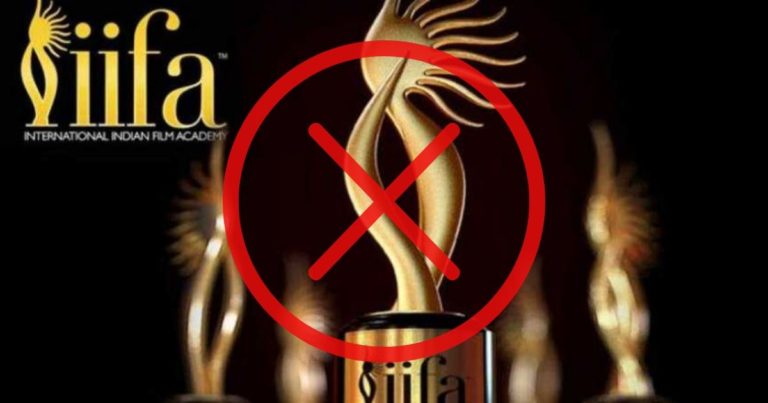By Om Tat sat,
The dust from the IIFA Awards (International Indian Film Academy Awards) storm is just beginning to settle.
- What really was the issue about?
- Why did it go from Nepal hosting IIFA Award 2019 to Nepal to stop any work on hosting the Award within a week?
The surprising aspect still was the slamming by the IIFA announcement that Nepal was just one of the contestants, and had not been finalized to host after all. If that was so, then what was the entire hullabaloo about? It simply made it clear that Nepal government cannot do anything right. IIFA officially blamed Nepal’s tourism board and the KMC for premature release of the information and a false one at that.
From the government point of view, this event was to help the tourism goal of reaching 1 million tourists in 2020. No one could really argue that hosting such an event would help that goal or promoting tourism in a big way. Bollywood has a global fan base and being able to host such a prestigious event would definitely have raised the profile of Nepal for future events of such importance.
All that is now gone. However, there is a lesson to be learnt and analyze why was there such an uproar and did the government really make a mistake? We have to shed our partisanship and judge on merit alone.
From the government perspective, IIFA seemed to have had three objectives:
- Branding Nepal
- Branding Kathmandu and
- Showcase Nepal’s capacity to host hundreds of celebrities at one time.
These are remarkable and logical goals for the nation. Successful hosting would have given an immense boost to the national economy by raising the image of Nepal globally. With regards to branding Kathmandu, one could question the appropriateness of such a choice because the real capital of tourism in Nepal is Pokhara. So, if the host city has been chosen to be Pokhara, provided they have a suitable venue, that would have been a better choice. Besides, Kathmandu is one of the most polluted cities in the world, and the plan might have backfired, instead.
IIFA Award has been hosted in 14 global cities such as Toronto, Tampa Bay (Florida), Bangkok, New York, Johannesburg, Dubai, Amsterdam, Singapore, New York, and have been able to boost the economy of these cities. All the host cities in the past were able to boost their economy directly credited to the IFFA Award ceremony. Data available for 2010-2014 shows that Toronto generated $24 million in 2011, and Tampa Bay, Florida gained $ 26 million in direct spending by the visitors.
After uproar in the social media and criticism by the Nepal film industry, concerned parliamentary committees stepped in and sought an explanation. According to the committee, “the Ministry of Culture, Tourism and Civil Aviation and Nepal Tourism Board could not furnish convincing arguments as to why the event should be organized in Nepal.”
Really?
It really seems absurd given that IIFA has proven track record of boosting tourism by 35 to 50 percent. In addition, IIFA and its partners spend $35 million in hosting the event, while $200 million is spent on media campaign that would boost the profile of the host country.
Setting aside the morality and low brow entertainment of Bollywood, one cannot deny the fact that Indian cinema has a global fan following of billions of people. Its influence can be seen by the inroad Bollywood has made into even China and Japan. Hollywood production houses now partner with Bollywood in producing movies. So, one cannot underestimate the soft power of Bollywood for India.
India is soon going to have million millionaires, according to Quartz India news report, including a boom of billionaires, more than any other country in the world. The greatest asset in India for Nepal is the 966 million Hindus, who have a sense of pride in Nepal’s former status of a Hindu nation. These are economic facts that could have been used to great benefit in favor of Nepal. Spending on IIFA would have been a great investment. Spending even Rs 5 billion would have been worthwhile, not just Rs 1 billion. With a smart marketing strategy, maybe some 100-crore club A-list actors could have been awarded free vacation to some choice locations in all seven provinces, which could have exposed billions of their fans to these attraction in Nepal and been a source of steady tourism boost. All that seems to have been thrown away. And what are the reasons?
The most vocal critic seems to have been the Nepali film fraternity, complaining that the government has not helped it, instead is boosting the Indian films. That is a silly argument to make. Nepal film industry is nothing but a copy of its Indian counterpart, and source of its movies. From songs, stories to dialogues and even the names of the movies are inspired or copied from Bollywood. Why would people even bother to watch Nepali movies? Or, maybe they were jealous of being upstaged by the original stars and the bigger international stars? Really, Nepali film fraternity has no right to complain. Well made movies, even though they might have been copied from Bollywood, have made good profits and established prominently some members of Kollywood. So, Nepalese film industry has placed its own selfish interest above that of the larger economic interest of Nepal.
Second argument seems to be the age old one. When people are crossing rivers using barely hanging cables over mountain-rivers, or when sick are not even getting “citamol,” etc. These are defeatist arguments. These arguments are fine when we oppose extravagant luxurious lifestyle of the political class nouveau riche, when they spend public billions on expensive cars, or exclusive perks for former office holders. However, they run pretty thin when we are planning to develop our strongest economic asset, the tourism.
With IIFA Award, Nepal could have increased the number of tourists, and also raised the high profile tourists who would cough more dough. It would have a great win for years to come.
Yes again, narrow selfish interest of select small group of people, emotional debris of Indian blockade of Nepal few years ago, and mindless gut criticism in social media has defeated an ill-managed plan of the government. All are to be blamed.
In final analysis, this seems to be a case of biting one’s nose to spite one’s face.
The writer is a graduate of Arizona State University in Political Science. He is working as a social activist and motivational speaker for students across Nepal since 2007.
The views and opinions expressed in this article are those of the author and do not necesarily reflect the official policy or position of Nepalisite.






















